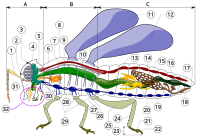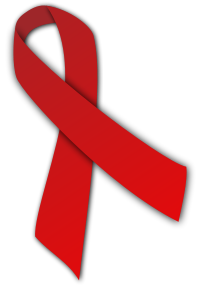
RNA interference of odorant receptor CquiOR114/117 affects blood-feeding behavior in Culex quinquefasciatus.
Sign Up to like & getrecommendations! Published in 2020 at "Acta tropica"
DOI: 10.1016/j.actatropica.2020.105343
Abstract: The odorant receptors (ORs) play a critical role for mosquitoes in the identification of blood-feeding hosts and other physiological processes. The OR8 subfamily in mosquitoes has been shown to be strongly involved in the detection… read more here.
Keywords: cquior114 117; feeding behavior; culex quinquefasciatus; rna interference ... See more keywords

Aedes aegypti sialokinin facilitates mosquito blood feeding and modulates host immunity and vascular biology.
Sign Up to like & getrecommendations! Published in 2022 at "Cell reports"
DOI: 10.1016/j.celrep.2022.110648
Abstract: Saliva from mosquitoes contains vasodilators that antagonize vasoconstrictors produced at the bite site. Sialokinin is a vasodilator present in the saliva of Aedes aegypti. Here, we investigate its function and describe its mechanism of action… read more here.
Keywords: biology; sialokinin facilitates; aedes aegypti; blood feeding ... See more keywords

Functional characterization of the dual allatostatin-A receptors in mosquitoes
Sign Up to like & getrecommendations! Published in 2018 at "Peptides"
DOI: 10.1016/j.peptides.2017.10.016
Abstract: Graphical abstract Figure. No caption available. HighlightsTwo AstA receptor types are expressed in disease vector mosquitoes.AstAR2 s are conserved within the dipteran lineage.AstARs are differentially activated by endogenous mosquito AstAs.Aedae‐ and Culqu‐AstAR2 s have a… read more here.
Keywords: insects; vector; functional characterization; characterization dual ... See more keywords

The immunomodulatory protein RH36 is relating to blood-feeding success and oviposition in hard ticks.
Sign Up to like & getrecommendations! Published in 2017 at "Veterinary parasitology"
DOI: 10.1016/j.vetpar.2017.03.017
Abstract: An immunomodulatory protein designated RH36 was identified in the tick Rhipicephalus haemaphysaloides. The cDNA sequence of RH36 has 844bp and encodes a deduced protein with a predicted molecular weight of 24kDa. Bioinformatics analysis indicated that… read more here.
Keywords: immunomodulatory protein; oviposition; rh36; blood feeding ... See more keywords

Dehydration prompts increased activity and blood feeding by mosquitoes
Sign Up to like & getrecommendations! Published in 2018 at "Scientific Reports"
DOI: 10.1038/s41598-018-24893-z
Abstract: Current insights into the mosquito dehydration response rely on studies that examine specific responses but ultimately fail to provide an encompassing view of mosquito biology. Here, we examined underlying changes in the biology of mosquitoes… read more here.
Keywords: blood feeding; biology; dehydration prompts; activity ... See more keywords

The pharmacological and functional characterization of the serotonergic system in Anopheles gambiae and Aedes aegypti: influences on flight and blood-feeding behavior
Sign Up to like & getrecommendations! Published in 2019 at "Scientific Reports"
DOI: 10.1038/s41598-019-38806-1
Abstract: Aedes aegypti and Anopheles gambiae harbor the causative agents of diseases such as dengue fever and malaria, afflicting human morbidity and mortality worldwide. Given the worldwide emergence of resistance to insecticides, the current mainstay for… read more here.
Keywords: aedes aegypti; system; feeding behavior; blood feeding ... See more keywords

Anopheline antiplatelet protein from mosquito saliva regulates blood feeding behavior
Sign Up to like & getrecommendations! Published in 2019 at "Scientific Reports"
DOI: 10.1038/s41598-019-39960-2
Abstract: The saliva of hematophagous arthropods is enriched with a complex mixture of antihemostatic molecules, the biological functions of which are largely unknown. Anopheline antiplatelet protein (AAPP) from malaria vector mosquito exhibits strong antiplatelet activity when… read more here.
Keywords: antiplatelet protein; feeding behavior; anopheline antiplatelet; antiplatelet ... See more keywords

Mating and blood-feeding induce transcriptome changes in the spermathecae of the yellow fever mosquito Aedes aegypti
Sign Up to like & getrecommendations! Published in 2020 at "Scientific Reports"
DOI: 10.1038/s41598-020-71904-z
Abstract: Aedes aegypti mosquitoes are the primary vectors of numerous viruses that impact human health. As manipulation of reproduction has been proposed to suppress mosquito populations, elucidation of biological processes that enable males and females to… read more here.
Keywords: changes spermathecae; aedes aegypti; mosquito; mating blood ... See more keywords

ATP-sensitive inward rectifier potassium channels reveal functional linkage between salivary gland function and blood feeding in the mosquito, Aedes aegypti.
Sign Up to like & getrecommendations! Published in 2022 at "Communications biology"
DOI: 10.1038/s42003-022-03222-1
Abstract: Reducing saliva secretions into the vertebrate host reduces feeding efficacy by most hematophagous arthropods. However, seminal studies suggested saliva is not a prerequisite for blood feeding in Aedes aegypti. To test this paradigm, we manually… read more here.
Keywords: aedes aegypti; salivary gland; blood feeding; blood ... See more keywords

Evolutionary transition from blood feeding to obligate nonbiting in a mosquito
Sign Up to like & getrecommendations! Published in 2017 at "Proceedings of the National Academy of Sciences of the United States of America"
DOI: 10.1073/pnas.1717502115
Abstract: Significance The evolutionary transformation from a blood-feeding to an obligate nonbiting lifestyle is occurring uniquely within the genetic background of a single species of mosquito, Wyeomyia smithii, as a product of selection in nature. Associated… read more here.
Keywords: evolutionary transition; feeding obligate; blood feeding; obligate nonbiting ... See more keywords

Dengue virus infection modifies mosquito blood-feeding behavior to increase transmission to the host
Sign Up to like & getrecommendations! Published in 2022 at "Proceedings of the National Academy of Sciences of the United States of America"
DOI: 10.1073/pnas.2117589119
Abstract: Significance Because dengue viruses are spread by mosquitoes during biting, transmission capacity depends on mosquito-biting behavior. For this reason, it is critical to understand how infection in mosquitoes influences biting. To answer this question, we… read more here.
Keywords: blood feeding; infection; transmission; host ... See more keywords